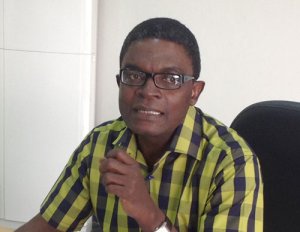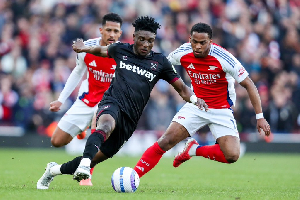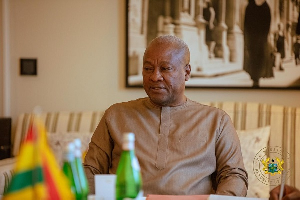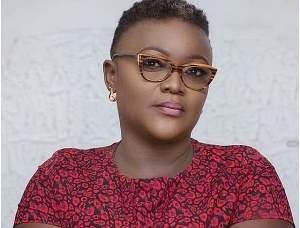Ghanaians need to probe the idea of power-sharing to know the most appropriate steps to take in order to achieve it when they decide that it is expedient to adopt it, stated a governance expert.
“The notion of power-sharing, what does it mean? We need to probe that,” said Dr Emmanuel Akwetey, the Executive Director of the Institute for Democratic Governance (IDEG), an Accra-based policy think-tank. Dr Akwetey said this at a media conference held in Accra last Wednesday.
During the question-and-answer session of the conference, he explained that the problem that caused the recent calls for power-sharing in the governance of the country emanates from the structure of the Executive. He said the powers of the Executive make it a monopoly while there is inclusive governance in the Legislature.
While saying “We need to get into the details,” he noted that the stakeholders should “improve the democratic space," and reiterated civil society group's demand for comprehensive reforms. “We entreat the media to be positive agents of reforms ... Reforms are extremely important,” he emphasised.
The conference, under the theme 'Upholding National Peace and Stability in Order to Deepen Ghana's Democratic Advancement,' was jointly held by the Civic Forum Initiative (CFI) and Coalition of Domestic Election Observers (CODEO) on the post-verdict of the Supreme Court situation in Ghana. CFI and CODEO have over 50 members.
On August 29, the Supreme Court confirmed President John Dramani Mahama as the validly elected President of the Republic in the election petition brought by Nana Addo Dankwa Akufo-Addo, the New Patriotic Party (NPP) candidate in the 2012 presidential election, his running mate, Dr Mahamudu Bawumia, and the NPP chairperson, Jake Otanka Obetsebi-Lamptey challenging the validity of the declaration of President Mahama as president by the Electoral Commission.
Recently, there have been calls for the current winner-takes-all system of governance to be changed for an all-inclusive government. Personalities who have made the calls include President Mahama, Dr Kwabena Adjei, chair of the ruling National Democratic Congress (NDC), Archbishop Charles Palmer-Buckle of the Accra Catholic Arch-diocese, Ransford Gyampoh of the Institute of Economic Affairs (IEA), Bernard Monah, General Secretary of the People's National Convention (PNC), among others.
Reading a statement on behalf CFI and CODEO, Major-General Nii Carl Coleman, chair of CFI, said: “We believe that it is now time for the nation to go beyond the Supreme Court verdict and focus more on the political, legal and constitutional reforms that must be executed in order to safeguard the integrity of the electoral process, advance the peaceful democratic development of our country, and strengthen national unity. We urge all political parties and political leaders, civil society organisations, the media and all peace-loving Ghanaians to do all they can to push through this reform agenda.”
Dr Akwetey recalled that electoral reforms have consistently followed all presidential and parliamentary elections conducted since 1992. “After we have seen the judgement, and if we have still seen weaknesses that need to be addressed, we have to broaden the agenda of the reforms by looking at the Constitution and that may require a referendum.”
He opined that the political reforms seemed to have started with the concession statement by Nana Akufo-Addo, adding “I wish that was the kind of politics we live with.” He asked the political parties to control their “hot-tempered” members for peace and stability to prevail in the country. He said even though reforms were necessary, the CFI and CODEO were prioritising peace and stability which would create the conditions for accelerated development of the country. “We can't build consensus without peace, and it is important to maintain the peace.”
A member of CODEO, Mrs Sena Gabianu, said the reforms were necessary since issues like the creation of new constituencies and the day for the national elections, December 7, needed to be dealt with. “Are we going to create new constituencies until we get to 1,000? Assuming the day of the elections falls on a Sunday,” Mrs Gabianu observed.
A member of CFI, Mr Kwesi Jonah, said there were external and internal mechanisms such as the Political Parties Code of Conduct, the party constitutions and dos and don'ts prepared by the parties for their members during the hearing of the election petition that guide operations of the parties. He said the parties must go by these mechanisms, to ensure that their members use temperate language and act reasonably. “The parties must enforce their own internal rules.”
General News of Saturday, 7 September 2013
Source: Public Agenda

















